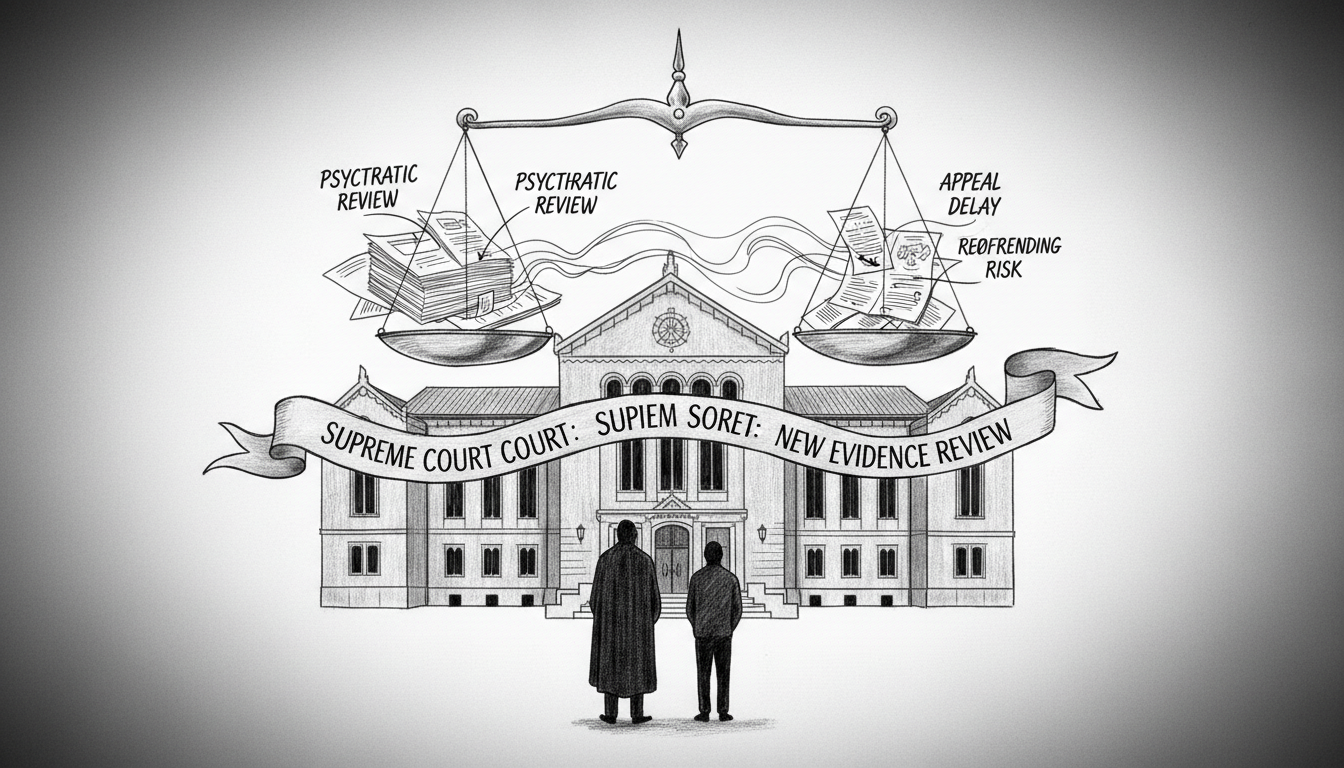Norway's Supreme Court has demanded additional evidence before ruling on Jan Helge Andersen's custody appeal. The court seeks expanded psychiatric evaluations regarding Andersen's pedophilia diagnosis and risk assessment. This development delays final resolution in one of Norway's most notorious criminal cases.
Prosecutor Andreas Schei confirmed the Supreme Court's request for updated information. The court specifically questioned how much weight should be given to psychiatric evaluations that use broad definitions of sexual abuse. Andersen's defense lawyer Svein Holden declined to comment on the proceedings.
Andersen received a two-year prison sentence in district court for the 2000 murder of Lena Sløgedal Paulsen in Baneheia. The appeals court later upgraded his punishment to preventive detention. This change occurred after psychiatric experts revised their assessment and diagnosed Andersen with pedophilia. They determined he poses substantial risk of committing new sexual offenses.
The Supreme Court's intervention comes as Andersen faces new charges for possessing child abuse imagery. He previously accepted a fine for downloading and storing similar illegal material. Prosecutor Schei noted uncertainty about whether Andersen's recent actions constitute criminal offenses. He emphasized this may not ultimately affect the preventive detention question.
Norway's legal system treats preventive detention as the most severe punishment available. Courts reserve this measure for offenders deemed highly likely to reoffend. The Supreme Court's careful approach reflects the gravity of this sentencing option. Their deliberation underscores the balance between public safety and individual rights.
This case continues to draw attention to Norway's criminal justice procedures. The Baneheia murder remains one of the country's most remembered crimes. The Supreme Court's methodical review process demonstrates the thoroughness of Norwegian appellate review. Their insistence on comprehensive evidence sets important precedents for future cases involving dangerous offenders.
The extended proceedings also highlight challenges in assessing sexual dangerousness. Psychiatric evaluations play crucial roles in Norwegian sentencing decisions. The court's scrutiny of expert testimony shows judicial awareness of diagnostic limitations. This careful approach protects against potential overreliance on psychiatric predictions.
International observers should note Norway's progressive penal philosophy. The country emphasizes rehabilitation while maintaining strict measures for dangerous individuals. This case illustrates how Norwegian courts navigate complex intersections of mental health assessment and public protection. The outcome will influence future treatment of high-risk offenders within Scandinavia's justice systems.

